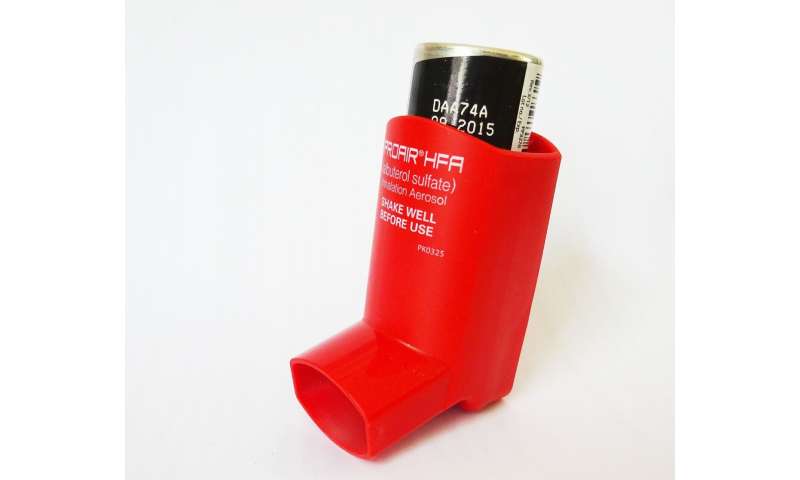
New data suggests that asthma is associated with longer time on ventilators for hospitalized younger patients with COVID-19. Patients with COVID-19 between the ages of 20 and 59 years old who also had asthma needed a ventilator to assist with breathing for five days more on average than non-asthmatic patients with COVID-19, according to researchers at Rush University Medical Center, who published their findings today in the Journal of Allergy and Clinical Immunology: In Practice.
“Among the patients who developed severe respiratory symptoms requiring intubation (the use of a ventilator), asthma was associated with a significantly longer intubation time in the younger group of patients who would seemingly have a better disease course than patients over the age of 65,” said Dr. Mahboobeh Mahdavinia, chief of allergy and immunology in the Department of Internal Medicine at Rush University Medical Center.
“Our findings suggest that younger individuals with asthma may require extra attention, as they could develop a sustained pulmonary failure with COVID-19 infection, leading to prolonged mechanical ventilation.”
Some signs and symptoms of COVID-19 are similar to worsening of asthma, which can lead to a late diagnosis of COVID-19 in asthmatics. “Therefore, we looked at a large group of patients to understand the impact of preexisting asthma on the outcome of patients with COVID-19,” Mahdavinia said.
“We found that asthma and obesity are connected in COVID-19 patients, which means that obesity coupled with asthma puts a patient at a significantly higher risk. This is the first report, to our knowledge, to study the role of asthma on the outcome of COVID-19 patients.”
Mahdavinia’s team of physician-scientists, medical residents, basic scientists and students used an electronic medical record algorithm created by the information services team at Rush to identify patients with asthma and COVID-19 who were either hospitalized or tested for COVID-19 at Rush between the dates of March 12 and April 3.
IBM SPSS Statistics for Windows was used for analysis of COVID-19 outcomes in association with asthma and were adjusted for demographic variables and body mass index (BMI).
Initially, data emerged for 1,003 patients who tested positive for COVID-19. Complete data on demographic variables, asthma, and COVID-19 management was available in 935 patients, who were used for analysis. Overall, 241 were found to have an established diagnosis of asthma, which were broken into three groups by age range.
Asthma was significantly associated with longer intubation time in patients between 18 and 49 years of age and between 50 and 64 years of age, but not in the age group 65 years of age and older. Duration of hospitalization was longer among patients with a history of asthma compared to those without this history in patients aged 50 to 64 years, but not in the younger or older age groups. The patients aged 50 to 64 on average spent two more days in the hospital than the non-asthmatics in this age group.
Asthma was not associated with a higher rate of death or with acute respiratory distress syndrome among COVID-19 patients.
“In other studies, both obesity and gender have been shown to affect COVID-19 hospitalization,” said Mahdavinia. “In our study, asthma was also associated with female gender and higher BMI.”
The analysis, which was adjusted for both obesity and gender, indicates that asthma is independently linked to the amount of time patients needed to be on ventilators.
Source: Read Full Article
